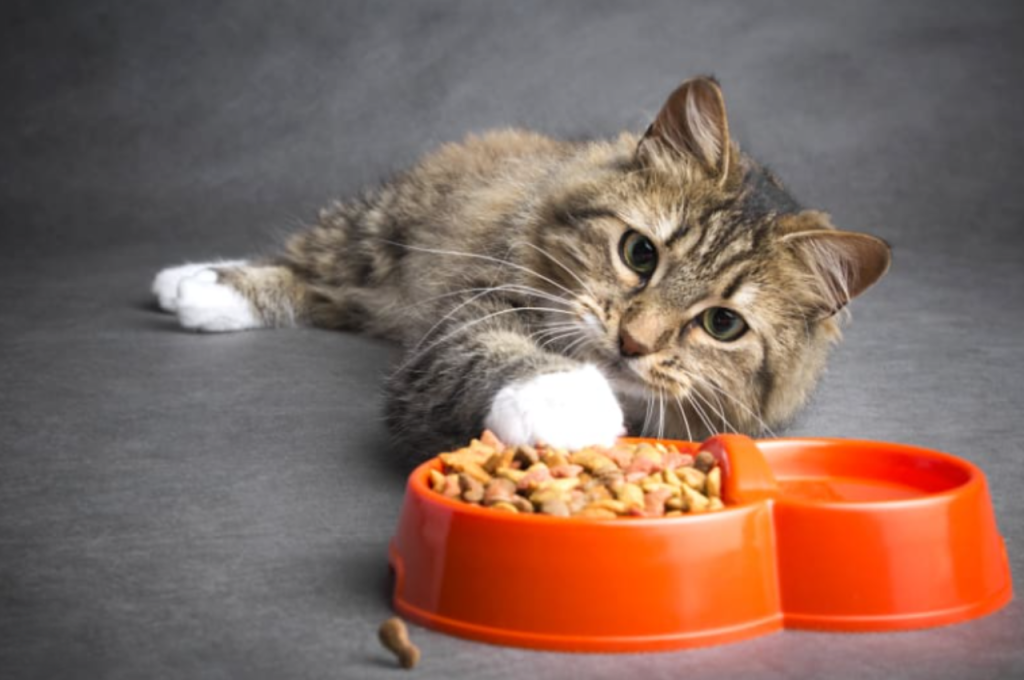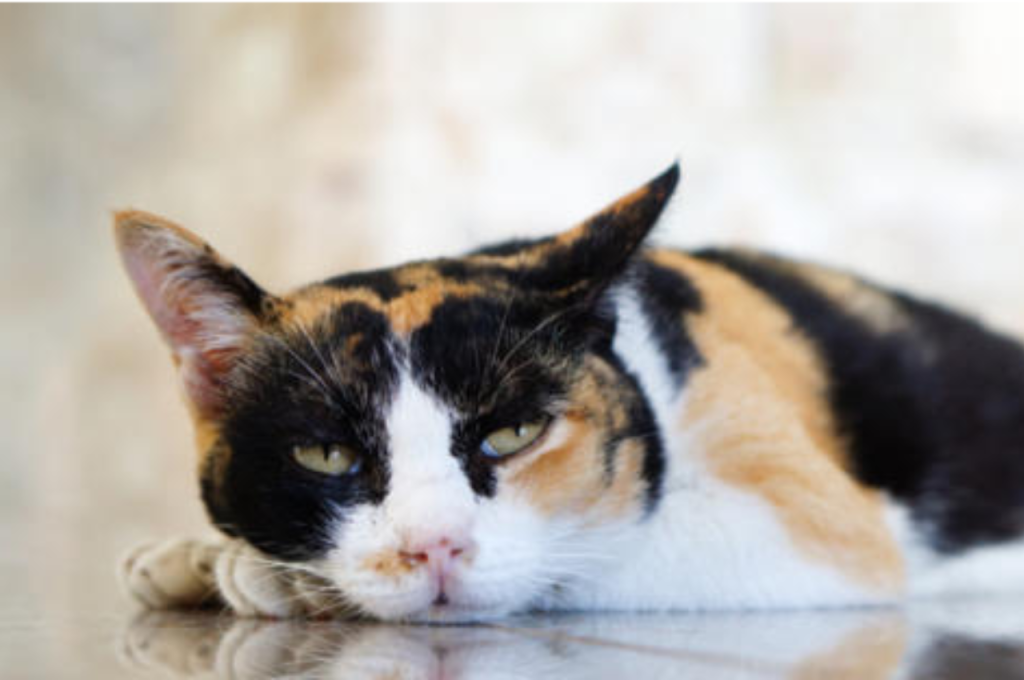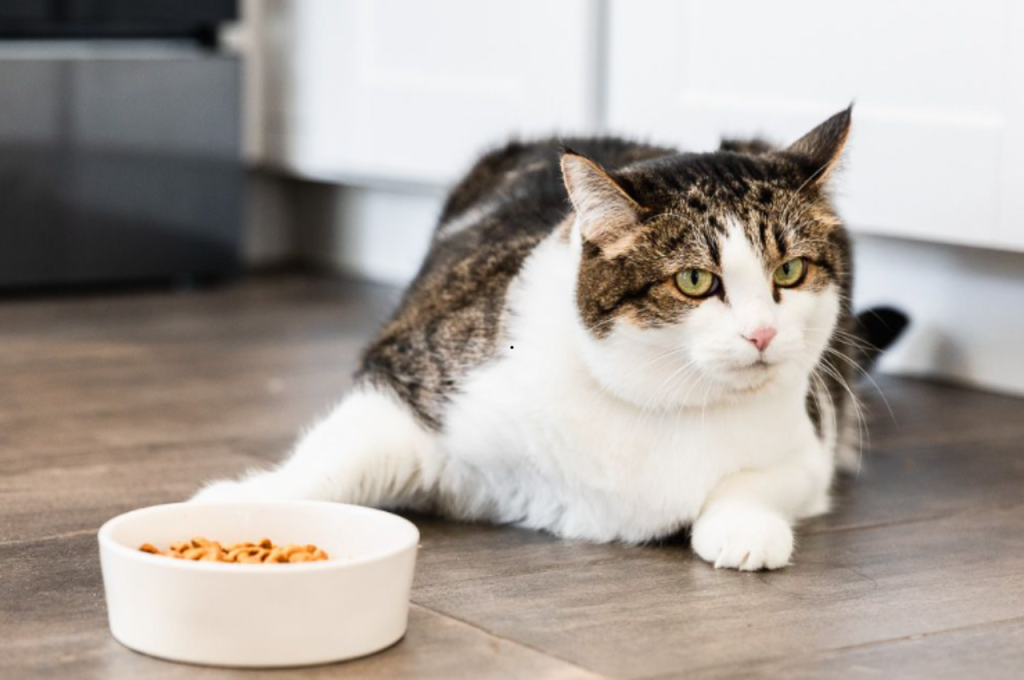Your cat may not be eating due to stress, illness, dental problems, or a change in routine. Understanding the underlying cause is important for addressing the issue effectively.
Cats can also lose their appetite due to food aversions or environmental changes. If your cat’s lack of appetite persists, consult a veterinarian to rule out any underlying health issues. It’s essential to monitor your cat’s behavior and look out for any other concerning symptoms that may indicate a more serious problem. In the following blog, we will explore the common reasons why cats stop eating and provide helpful tips to encourage your feline friend to start eating again.
Common Health Problems Affecting Appetite
Is your cat not eating? This could be due to common health problems affecting appetites, such as dental issues, gastrointestinal problems, or stress. It’s important to consult with a veterinarian to identify the underlying cause and provide appropriate treatment for your cat’s decreased appetite.

Dental Pain and Oral Diseases
Cats rely on their teeth and mouth to eat, so any issues in this area can significantly affect their appetite. Dental pain and oral diseases are common health problems that can cause your cat to stop eating.
Poor dental hygiene can lead to the development of tartar and plaque on your cat’s teeth, which can then progress to gum disease and tooth decay. These conditions can be painful for your cat, making it difficult for them to chew and swallow food. If your cat is experiencing dental pain or oral diseases, they may show signs such as drooling, bad breath, and reluctance to eat. They may also paw at their mouth or exhibit increased irritability.
Digestive System Disorders
The digestive system plays a crucial role in the cat’s ability to process and absorb nutrients from their food. Any disorders affecting this system can disrupt their appetite and lead to a decrease in food intake.
One common digestive system disorder in cats is gastroenteritis, which is characterized by inflammation of the stomach and intestines. This condition can be caused by various factors such as dietary indiscretion, infections, or allergies. Cats with gastroenteritis may experience symptoms like vomiting, diarrhea, abdominal pain, and decreased appetite. In severe cases, they may also become dehydrated, lethargic, and lose weight.
Another digestive system disorder that can affect your cat’s appetite is pancreatitis. This condition involves inflammation of the pancreas, which can disrupt the production of digestive enzymes. Cats with pancreatitis may exhibit symptoms such as loss of appetite, vomiting, diarrhea, and abdominal pain. They may also show signs of discomfort, such as hunching their back or avoiding physical contact.
It’s important to note that these are just two examples of digestive system disorders that can impact your cat’s appetite. There are several other conditions that can cause similar symptoms, so it’s crucial to consult with a veterinarian for an accurate diagnosis and appropriate treatment.
Psychological Factors and Stress
When a cat stops eating, it can be concerning for pet owners. Psychological factors and stress play a significant role in a cat’s appetite. Understanding the various reasons behind these issues can help address the problem effectively.
Environmental Changes and Anxiety
Cats are creatures of habit and can be sensitive to changes in their environment. Moving to a new home, rearranging furniture, or introducing new pets can cause anxiety and lead to a loss of appetite in cats. Providing a safe and familiar space for the cat to retreat to can help alleviate this stress.
Inter-cat Dynamics and Stress
Tensions between multiple cats in a household can create a stressful environment, leading to a decrease in appetite. Cats may feel threatened or anxious due to competition for resources or territory. It’s essential to create separate feeding areas and provide plenty of hiding spots and perches to reduce inter-cat conflicts.
Dietary Preferences and Dislikes
Does your cat have dietary preferences and dislikes? If you’re wondering why your cat is not eating, it could be due to their specific tastes and aversions. Understanding their preferences and finding suitable alternatives can help ensure they maintain a healthy diet.
Picky Eaters: Myth or Reality
Cats can be picky eaters due to their strong preferences. Some may refuse food based on texture or smell.
The Impact of Diet Changes on Appetite
Diet changes can affect a cat’s appetite, leading to temporary reluctance to eat. Gradual transitions can help. Cats may have specific dislikes such as certain flavors or ingredients. It’s important to respect their preferences. Factors like age, health issues, and stress can also influence a cat’s eating habits.
Age-related Appetite Changes
If you’re wondering why your cat is not eating, it could be due to age-related appetite changes. Cats, like humans, may experience decreased appetite as they get older, which could be influenced by various factors such as dental issues, health conditions, or simply a change in taste preferences.
Understanding Senior Cats’ Nutritional Needs
As cats age, they experience various changes in their bodies, including shifts in their appetite. Understanding the nutritional needs of senior cats is crucial for ensuring their overall health and well-being. By providing them with the right diet, you can help address age-related appetite changes and maintain their optimal weight. Here, we will explore how aging affects eating habits in cats and provide insights into managing their nutritional requirements.
How Aging Affects Eating Habits
As cats enter their senior years, their metabolism slows down, resulting in reduced energy expenditure. This decrease in activity level can lead to a decline in appetite. Additionally, older cats may develop dental issues, making it uncomfortable for them to chew on dry food.
Their sense of smell and taste might also diminish, affecting their interest in food. These factors combined can contribute to a decreased appetite in senior cats. To overcome these challenges and ensure that your aging cat gets the necessary nutrition, it is important to make adjustments to their diet. Consider the following tips:
- Choose a high-quality, senior-specific cat food that is specifically formulated to meet the nutritional needs of older cats. These diets are designed to be more easily digestible and often contain ingredients that support joint health and urinary tract function.
- If your senior cat has dental issues, consider offering wet food or moistening dry food with warm water to make it easier for them to eat. You can also consult your veterinarian about dental care options and whether a dental cleaning is necessary.
- Ensure that fresh water is always available for your cat. Hydration is essential for their overall health, and older cats may be prone to dehydration.
- Monitor your cat’s weight regularly and adjust their food portions accordingly. Overfeeding can lead to obesity, while underfeeding can result in malnutrition. Consulting with your veterinarian about the appropriate portion sizes for your senior cat’s specific needs is highly recommended.
By understanding the unique nutritional requirements of senior cats and making appropriate changes to their diet, you can help manage age-related appetite changes and ensure that your feline companion remains healthy and happy as they enter their golden years. Remember to consult your veterinarian for personalized advice based on your cat’s individual needs.
The Role of Illness and Disease
As a cat owner, it can be worrisome when your feline companion refuses to eat. While there are several reasons why your cat may not be eating, illness and disease are among the most common culprits. Understanding the role of illness and disease in a cat’s appetite can help you identify the issue and seek appropriate veterinary care.

Chronic Diseases and Appetite Suppression
Chronic diseases such as kidney disease, liver disease, and cancer can have a significant impact on a cat’s appetite. These conditions can cause nausea, pain, and discomfort, all of which can lead to a decreased desire to eat. In addition, certain medications used to treat these conditions can also cause appetite suppression.
If you suspect that your cat may be suffering from a chronic disease, it is important to seek veterinary care as soon as possible. Your veterinarian can perform diagnostic tests and recommend appropriate treatment options to help manage your cat’s condition and improve their appetite.
Acute Illnesses Leading to Anorexia
Acute illnesses such as infections, dental problems, and gastrointestinal issues can also lead to a loss of appetite in cats. In some cases, cats may even develop anorexia, which is a complete loss of appetite. If your cat is suffering from an acute illness, it is important to seek veterinary care promptly. Your veterinarian can perform diagnostic tests to determine the underlying cause of your cat’s symptoms and recommend appropriate treatment options.
Illness and disease can have a significant impact on a cat’s appetite, leading to decreased food intake and potentially serious health complications. If you suspect that your cat may be suffering from an illness or disease, it is important to seek veterinary care as soon as possible to ensure prompt diagnosis and treatment.
Medications and Their Side Effects
Medications can have a significant impact on your cat’s appetite, leading to reduced food intake or complete anorexia. Understanding the potential side effects of common drugs is crucial in managing medication-induced anorexia in cats.
Common Drugs That Alter Appetite
Several medications can affect a cat’s appetite, including antibiotics, steroids, chemotherapy drugs, and pain medications. These drugs can disrupt the normal functioning of the digestive system, leading to a decrease in appetite.
Managing Medication-induced Anorexia
When your cat is prescribed medications that may affect their appetite, it’s essential to work closely with your veterinarian to monitor their eating habits. Ensuring that medications are administered with food can help mitigate potential adverse effects on appetite. Additionally, your veterinarian may recommend adjusting the dosage or switching to alternative medications to minimize the impact on your cat’s appetite.
When to Seek Veterinary Care
Identifying The Signs of a Serious Problem
If your cat exhibits any of the following signs, it may indicate a serious issue:
- Lack of appetite for more than 24 hours
- Weight loss
- Weakness or lethargy
- Vomiting or diarrhea
- Changes in behavior or activity level
The Diagnostic Process for Loss of Appetite
When your cat is not eating, the veterinarian may perform the following diagnostic steps:
- Physical examination
- Complete blood count (CBC) and chemistry panel
- Urinalysis
- X-rays or ultrasound
- Fecal examination for parasites
Home Care and Monitoring
When your cat is not eating, it is important to take action to ensure they receive proper nutrition and stay healthy. Home care and monitoring are essential to encourage your cat to eat and maintain a healthy appetite.
Tips for Encouraging Your Cat to Eat
If your cat is not eating, there are several tips you can try to encourage them to eat:
- Offer a variety of foods to entice your cat’s appetite.
- Warm up their food or add a little bit of warm water to make it more appealing.
- Try different feeding methods, such as hand-feeding or offering smaller, more frequent meals throughout the day.
- Provide a calm and quiet feeding area away from distractions.
- Consider using food puzzles or toys to make mealtime more engaging for your cat.
Monitoring and Maintaining a Healthy Appetite
It is important to monitor your cat’s appetite and ensure they are eating enough to maintain their health. Here are some tips to help you monitor and maintain your cat’s appetite:
- Weigh your cat regularly to ensure they are maintaining a healthy weight.
- Monitor their water intake to ensure they are staying hydrated.
- Keep track of their eating habits and note any changes or concerns.
- Consult with your veterinarian if you have any concerns about your cat’s appetite or overall health.
By following these tips for home care and monitoring, you can help encourage your cat to eat and maintain a healthy appetite, ensuring they receive the proper nutrition they need to thrive.
Prevention Strategies and Healthy Habits
Encouraging your cat to maintain healthy habits and implementing prevention strategies can help address loss of appetite. Try feeding your cat small, frequent meals, offering a variety of foods, and ensuring fresh water is available at all times. Regular exercise and keeping up with veterinary check-ups can also help ensure your cat stays healthy and happy.
Creating a Stress-free Feeding Environment
Creating a stress-free feeding environment for your cat is crucial to ensure they have a healthy appetite. Cats are highly sensitive creatures, and any changes or disruptions in their environment can lead to a loss of appetite. Here are some strategies to consider:
- Provide a quiet and calm space: Choose a quiet area in your home where your cat can eat without distractions or interruptions. This will help them feel more relaxed and focused on their meal.
- Avoid loud noises: Cats have sensitive hearing, so loud noises can be distressing and make them hesitant to eat. Keep their feeding area away from appliances or areas where there is a lot of noise.
- Keep feeding time consistent: Cats thrive on routine, so try to establish a consistent feeding schedule. Feed them at the same time every day to help regulate their appetite and reduce stress.
- Use a clean food bowl: Cats are known for their cleanliness, and a dirty food bowl can be off-putting for them. Ensure their food bowl is clean and free from any residue or odors that could deter them from eating.
- Separate multiple cats: If you have multiple cats, it’s important to provide separate feeding areas for each of them. Some cats may feel anxious or threatened by other cats when it comes to mealtime, leading to a decreased appetite.
Routine Health Checks and Preventive Care
Regular health checks and preventive care are essential for maintaining your cat’s overall well-being, including their appetite. Here are some healthy habits to incorporate into your cat’s routine:
- Schedule regular vet visits: Regular check-ups with a veterinarian can help identify any underlying health issues that may be affecting your cat’s appetite. It’s important to catch any potential problems early on.
- Keep vaccinations up to date: Vaccinations play a crucial role in preventing diseases that can affect your cat’s health and appetite. Follow your vet’s recommended vaccination schedule to ensure your cat is protected.
- Provide a balanced diet: Feeding your cat a nutritionally balanced diet is key to their overall health. Consult with your veterinarian to determine the best diet for your cat’s age, breed, and any specific health concerns.
- Offer fresh water: Ensure your cat always has access to fresh, clean water. Dehydration can lead to a loss of appetite, so it’s important to encourage proper hydration.
- Monitor weight and body condition: Regularly check your cat’s weight and body condition to ensure they are maintaining a healthy weight. Sudden weight loss or gain can be a sign of underlying health issues.
Ensuring Feline Well-being
Meat is essential for ensuring feline well-being. Ensure your cat’s diet includes high-quality protein, as cats need meat to thrive and maintain their health.

The Importance of Addressing Feeding Issues Promptly
A cat not eating can be a sign of underlying health problems.
- Monitor your cat’s eating habits daily.
- Consult a vet if your cat refuses food for more than 24 hours.
- Ensure a clean and quiet feeding area for your cat.
Fostering a Loving Relationship Through Care
Caring for your cat’s well-being strengthens your bond with them.
- Provide fresh water and a balanced diet.
- Engage in interactive playtime to reduce stress.
- Regular grooming sessions show your cat love and attention.
Conclusion
Understanding why your cat is not eating is crucial for its health. By addressing potential reasons such as stress, dental issues, or medical conditions, you can help your feline friend regain its appetite. Consulting a vet for proper diagnosis and treatment is essential for your cat’s well-being.
